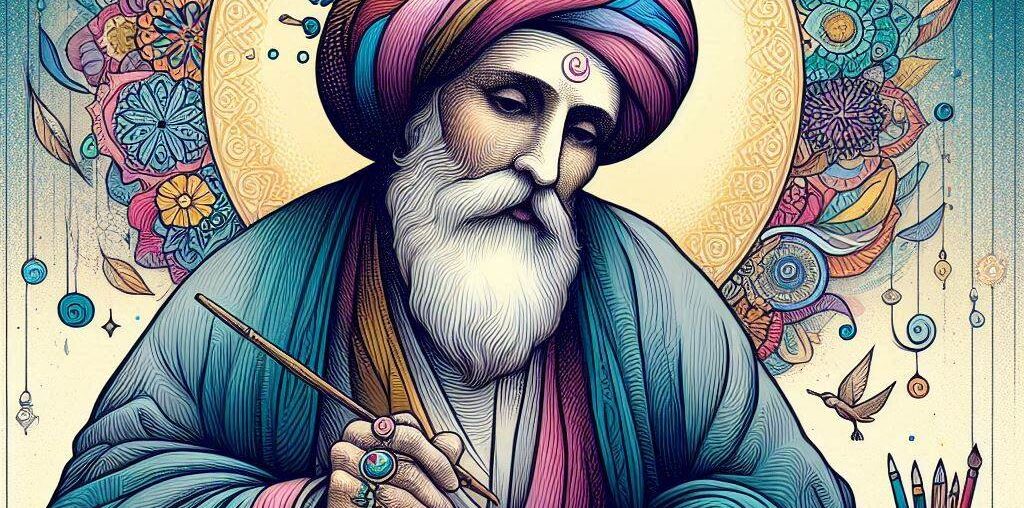The Dance of Unity: Inspired by Rumi’s Teachings
In the vast tapestry of spiritual wisdom, Rumi’s words shine like stars, illuminating the path to inner truth and divine connection. His poetry, with its depth and beauty, continues to captivate hearts and minds, offering profound insights into the nature of existence and the human experience. Here, we delve into nine of Rumi’s most potent teachings, each a beacon of light guiding us towards a more meaningful and enlightened way of living.
Rumi, the 13th-century Persian poet, is known for his profound and spiritual poetry that continues to inspire people around the world. Here are nine spiritual lessons we can learn from his works:
- Oneness and Unity: Rumi often speaks about the concept of oneness, emphasizing that we are all connected to each other and to the divine. He says, “You are not a drop in the ocean. You are the entire ocean in a drop.”
- Love as a Path to the Divine: Love is a central theme in Rumi’s poetry, and he often describes it as a path to experiencing the divine. He writes, “Let yourself be silently drawn by the strange pull of what you really love. It will not lead you astray.”
- Suffering and Transformation: Rumi acknowledges the reality of suffering but sees it as a catalyst for transformation. He says, “The wound is the place where the Light enters you.”
- Living in the Present: Rumi emphasizes the importance of living in the present moment, free from regrets about the past or worries about the future. He writes, “Do not worry that your life is turning upside down. How do you know that the side you are used to is better than the one to come?”
- Humility and Gratitude: Rumi encourages humility and gratitude as virtues that open us up to receiving the blessings of life. He says, “Be grateful for whoever comes, because each has been sent as a guide from beyond.”
- The Power of Silence: Rumi speaks about the transformative power of silence and the importance of listening to the inner voice. He writes, “Silence is the language of God, all else is poor translation.”
- The Journey Inward: Rumi teaches that the real journey is not outward but inward, towards self-discovery and enlightenment. He says, “What you seek is seeking you.”
- Letting Go of Ego: Rumi emphasizes the need to let go of the ego, which he sees as a barrier to spiritual growth. He writes, “Your task is not to seek for love, but merely to seek and find all the barriers within yourself that you have built against it.”
- Embracing Change: Rumi teaches us to embrace change as a natural part of life and to see it as an opportunity for growth. He says, “Yesterday I was clever, so I wanted to change the world. Today I am wise, so I am changing myself.”
These lessons from Rumi’s poetry are timeless and continue to inspire people to live more meaningful and spiritually fulfilling lives. In these teachings, Rumi offers us a roadmap to a more meaningful and spiritually fulfilling life, inviting us to embrace love, humility, and gratitude as guiding principles on our journey towards the divine.

